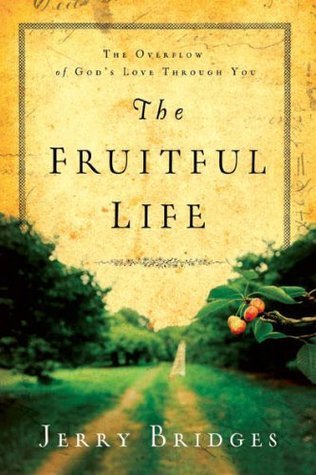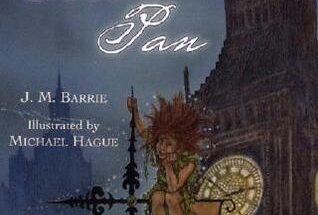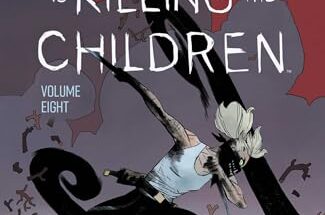
Main Characters
At the heart of “The Fruitful Life” lies a rich tapestry of characters, each intricately woven into the narrative. The protagonist, Sarah, is a young woman grappling with the complexities of her identity and aspirations. Her motivation stems from a deep desire for personal growth and fulfillment, which drives her to confront her past and seek a more meaningful existence. Sarah’s journey is marked by her relationships with other key characters, including her best friend, Emily, who serves as a foil to her aspirations. Emily embodies the conventional path of life, prioritizing stability over adventure, which creates tension and conflict between the two friends.
The antagonist, Mark, represents the societal pressures that challenge Sarah’s quest for authenticity. He is a charismatic figure who initially seems supportive but ultimately undermines Sarah’s ambitions, embodying the fears and doubts that plague her. Mark’s motivations are rooted in his desire for control and a fear of change, making him a formidable obstacle in Sarah’s journey. As the story unfolds, the relationships between these characters evolve, revealing layers of complexity and growth. Sarah learns to assert her independence, while Emily confronts her own fears of stepping outside her comfort zone. Mark, too, undergoes a transformation, ultimately reflecting the consequences of his actions and the impact of societal expectations on personal relationships.
Plot
The central conflict of “The Fruitful Life” revolves around Sarah’s struggle to define her own path in a world that often imposes rigid expectations. The narrative begins with Sarah feeling trapped in her mundane routine, yearning for a life filled with passion and purpose. As she embarks on a journey of self-discovery, she encounters various challenges that test her resolve. The plot thickens as Sarah’s relationship with Mark becomes increasingly tumultuous, leading to a climax that forces her to confront her deepest fears.
The resolution of the conflict is both poignant and uplifting. Through a series of transformative experiences, Sarah learns to embrace her individuality and make choices that align with her true self. The conclusion emphasizes the importance of resilience and the power of self-acceptance, leaving readers with a sense of hope and inspiration. The narrative arc effectively illustrates the complexities of personal growth, showcasing how the characters’ interactions and experiences shape their destinies.
Setting
The setting of “The Fruitful Life” plays a crucial role in shaping the characters and events of the story. The novel unfolds in a contemporary urban environment, characterized by its vibrant yet challenging atmosphere. The bustling city serves as a backdrop for Sarah’s journey, reflecting the chaos and opportunities that define modern life. The contrasting settings, such as serene parks and bustling cafes, symbolize the duality of Sarah’s internal struggle—between the desire for peace and the pressures of societal expectations.
The urban landscape influences the characters significantly, as it presents both obstacles and opportunities for growth. Sarah’s experiences in the city force her to confront her fears, while also providing her with a diverse array of perspectives that challenge her understanding of success and fulfillment. The setting becomes a character in its own right, representing the complexities of contemporary life and the myriad influences that shape individual choices.
Themes
“The Fruitful Life” explores several underlying themes that resonate deeply with readers. One prominent theme is the quest for authenticity in a world filled with expectations. Sarah’s journey highlights the importance of self-discovery and the courage to pursue one’s passions, even in the face of adversity. The novel also delves into the theme of friendship, illustrating how relationships can both support and hinder personal growth. The dynamics between Sarah, Emily, and Mark serve as a microcosm of the broader societal pressures that individuals face.
Another significant theme is the impact of societal norms on personal identity. The characters grapple with the tension between conformity and individuality, reflecting the struggles many face in navigating their own paths. The motifs of nature and growth serve as powerful symbols throughout the narrative, reinforcing the idea that personal development is a continuous journey, often fraught with challenges but ultimately rewarding.
Author’s Narrative Style
The author’s narrative style in “The Fruitful Life” is characterized by a blend of lyrical prose and introspective dialogue. The writing is both evocative and accessible, drawing readers into Sarah’s inner world while also painting vivid descriptions of the setting. The tone is reflective, inviting readers to contemplate the complexities of life and the choices that shape one’s destiny. The author skillfully balances moments of tension with lyrical passages that evoke a sense of wonder and possibility, creating a rich reading experience.
Author’s Point of View
The story is told from a third-person limited perspective, primarily focusing on Sarah’s thoughts and feelings. This point of view allows readers to intimately connect with Sarah’s struggles and triumphs, providing insight into her motivations and desires. The narrative occasionally shifts to include the perspectives of other characters, enriching the story and offering a more comprehensive understanding of the dynamics at play. This approach enhances the emotional depth of the narrative, allowing readers to empathize with the characters’ journeys.
Personal Reflection
Reflecting on “The Fruitful Life,” I find the novel to be a poignant exploration of the human experience. The themes of authenticity, friendship, and personal growth resonate deeply, particularly in a world that often prioritizes conformity over individuality. The characters’ struggles mirror the challenges many face in their own lives, making the story both relatable and inspiring. In light of current events, the novel’s exploration of societal expectations and personal identity feels particularly relevant, as individuals continue to navigate the complexities of modern life.
The impact of the book extends beyond its narrative; it serves as a reminder of the importance of self-acceptance and the courage to pursue one’s passions. The lessons embedded within the story encourage readers to reflect on their own lives and consider the choices that ultimately define their paths.
Conclusion
In conclusion, “The Fruitful Life” is a compelling novel that captures the intricacies of personal growth and the quest for authenticity. Through its rich characters, engaging plot, and thought-provoking themes, the book invites readers to reflect on their own journeys and the societal pressures that shape their identities. The author’s narrative style and perspective enhance the emotional depth of the story, creating a resonant reading experience. Ultimately, “The Fruitful Life” serves as a testament to the power of self-discovery and the importance of embracing one’s individuality in the pursuit of fulfillment.
Also check out…
- 5 Books to Aid Your Spiritual Growth: A Journey of Faith and Transformation
- Summary of “Shades of Mercy”
- The Profound Meaning and Significance of Baptism


